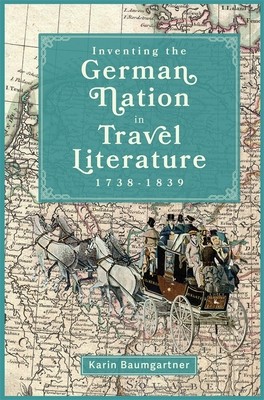
- Išsiųsime per 10–14 d.d.
- Autorius: Karin Baumgartner
- Leidėjas Camden House (NY)
- ISBN-10 : 1640141383
- ISBN-13 : 9781640141384
- Formatas: 15.2 x 22.9 x 1.8 cm, kieti viršeliai
- Kalba: Anglų
- Extra -15 % nuolaida šiai knygai su kodu: ENG15
Inventing the German Nation in Travel Literature, 1738-1839 + nemokamas atvežimas! | knygos.lt
Atsiliepimai
Aprašymas
Argues that German national identity was fostered, and even invented, in and through travelogues and other travel writing.Far into the nineteenth century, Germany was not yet a nation-state but a conglomeration of principalities. The causes and consequences of its "belatedness" compared to other European countries such as England and France have been much debated. The present book breaks new ground by identifying travel literature as an important factor in the forging of a distinct and cohesive German identity well before political unification in 1871. First, foreign travelers' accounts (travelogues, guidebooks) referred to and treated "Germany" as a distinct place, even though it was still politically divided, thus enabling German readers to imagine their fragmented nation as a conceptual whole. Second, Germans themselves began to explore their homeland and write travelogues that solidified the nascent sense of national identity. Ethnographic descriptions from places and peoples far away further aided this process, as Germans learned to view themselves through this particular lens.
Surveying a large corpus of German (and some British and French) travelogues, travel handbooks, and popular geographic texts, and bringing to bear discourses of nationalism and geography including Edward Soja's seminal concept of Thirdspace, Karin Baumgartner reveals what travel writing can tell us about conceptual changes in geographic paradigms and national identity in Germany in the eighteenth and nineteenth centuries.
EXTRA 15 % nuolaida
Kupono kodas: ENG15
Akcija baigiasi už 6d.18:00:21
Nuolaidos kodas galioja perkant nuo 10 €. Nuolaidos nesumuojamos.

- Autorius: Karin Baumgartner
- Leidėjas Camden House (NY)
- ISBN-10: 1640141383
- ISBN-13: 9781640141384
- Formatas 15.2 x 22.9 x 1.8 cm, kieti viršeliai
- Kalba: Anglų
Far into the nineteenth century, Germany was not yet a nation-state but a conglomeration of principalities. The causes and consequences of its "belatedness" compared to other European countries such as England and France have been much debated. The present book breaks new ground by identifying travel literature as an important factor in the forging of a distinct and cohesive German identity well before political unification in 1871. First, foreign travelers' accounts (travelogues, guidebooks) referred to and treated "Germany" as a distinct place, even though it was still politically divided, thus enabling German readers to imagine their fragmented nation as a conceptual whole. Second, Germans themselves began to explore their homeland and write travelogues that solidified the nascent sense of national identity. Ethnographic descriptions from places and peoples far away further aided this process, as Germans learned to view themselves through this particular lens.
Surveying a large corpus of German (and some British and French) travelogues, travel handbooks, and popular geographic texts, and bringing to bear discourses of nationalism and geography including Edward Soja's seminal concept of Thirdspace, Karin Baumgartner reveals what travel writing can tell us about conceptual changes in geographic paradigms and national identity in Germany in the eighteenth and nineteenth centuries.




Atsiliepimai